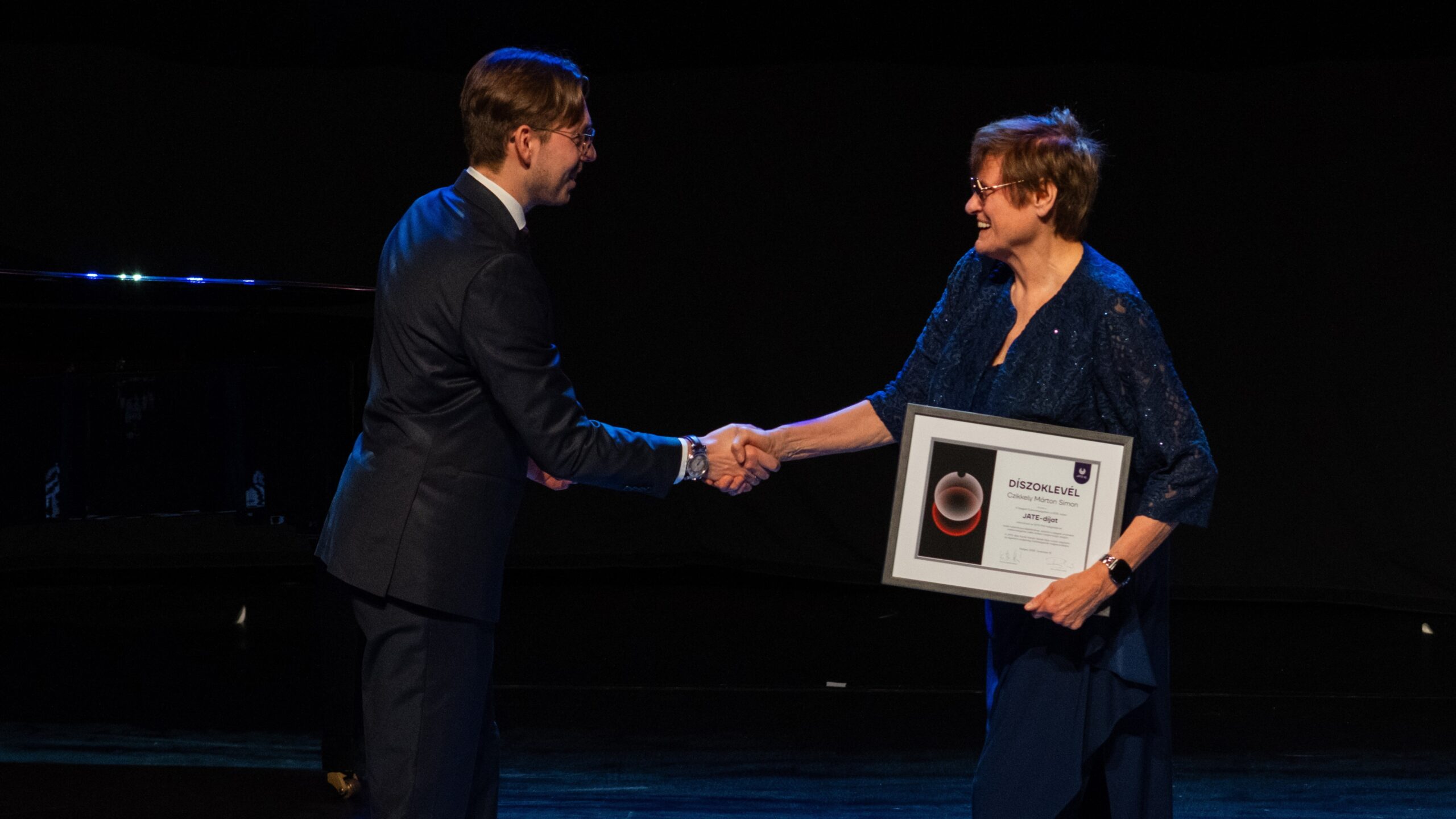The University of Szeged hosted the inaugural ceremony of the JATE Awards on Saturday evening, an accolade created by Nobel Prize-winning researcher Katalin Karikó. The first recipients were literary historian Mihály Ilia, chemistry professor Ágota Tóth, and medical doctor and doctoral candidate Márton Simon Czikkely.
Karikó, a former student of the university’s predecessor, the József Attila University (JATE), announced on 12 October 2023 that she would donate both the replica of her Nobel Prize in Physiology or Medicine and the accompanying prize money—more than 500,000 dollars—to her alma mater. Drawing on this donation, Karikó and the university established the JATE Award to honour the legacy of the former institution, strengthen its reputation, and celebrate exceptional academic achievement in Szeged.
Speaking at the gala, Karikó said she had always been proud to have studied at JATE. For those who attended between the 1960s and 1990s, she noted, the university was not only a shared educational experience but also a shared way of life. She added that meeting fellow alumni around the world continues to foster an immediate bond, and that in recent years she has celebrated with JATE graduates in many cities. Among them are several ambassadors, the President of Hungary and acclaimed writer László Krasznahorkai, who also began his studies there. Karikó emphasized that the award is also a tribute to her former teachers and their dedicated work.
Rector László Rovó highlighted that the JATE Award blends tradition and innovation: it recalls the university’s past while allowing members of the academic community to nominate candidates. With three categories—student, faculty and alumni—the award recognizes the full spectrum of the university’s community.
In the student category, the first honoree was Márton Simon Czikkely, a medical graduate of the University of Szeged and now a doctoral researcher. His work focuses on bacterial genome engineering and antibiotic resistance. He has published ten papers in leading journals and plays an active role in science communication.
The faculty award went to chemistry professor Ágota Tóth, Head of the Department of Physical Chemistry and Materials Science. She earned both her chemistry degree and PhD in Szeged before continuing her career in the United States and later returning to her home institution. A respected figure in nonlinear chemical dynamics, she has co-authored 117 internationally indexed papers with over 2,100 citations. Students have voted her the Faculty of Science’s best lecturer three times.
The first alumni award was presented to literary historian Mihály Ilia. Often described as a one-man institution, Ilia has been connected to the university since 1953. His scholarly work includes studies on the first generation of the literary magazine Nyugat and notable analyses of Gyula Juhász and Endre Ady. His sensitive, empathetic criticism has shaped contemporary Hungarian literary discourse. As a teacher and editor, he played a defining role in the legacy of Tiszatáj, where he once served as its legendary editor-in-chief.
Each laureate received a diploma, a small sculpture symbolizing the spirit of the award and a prize of 5,000 dollars.
Related articles:







